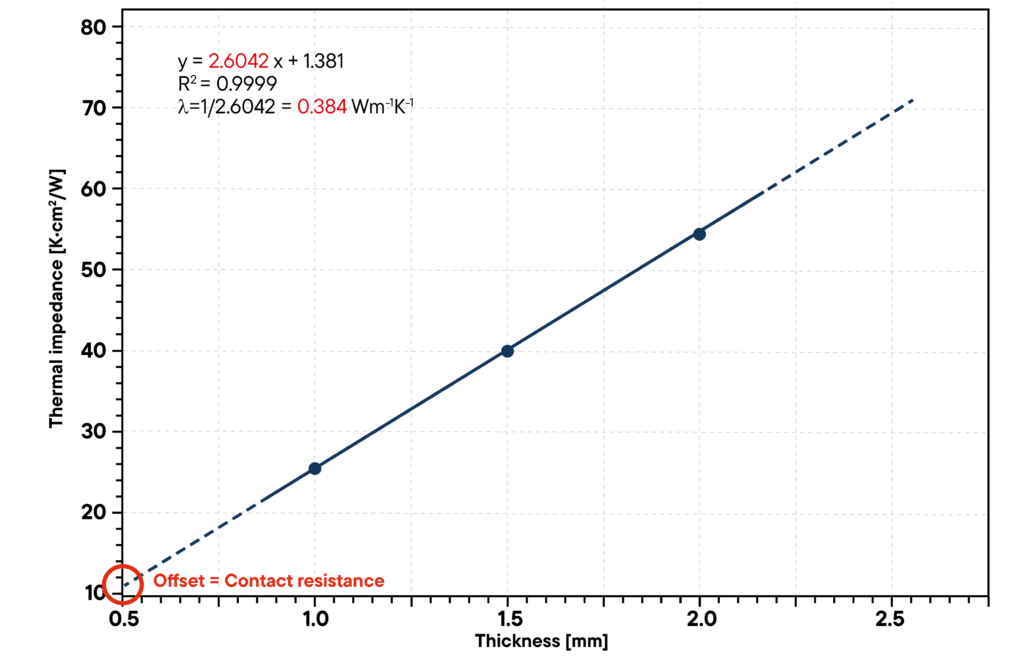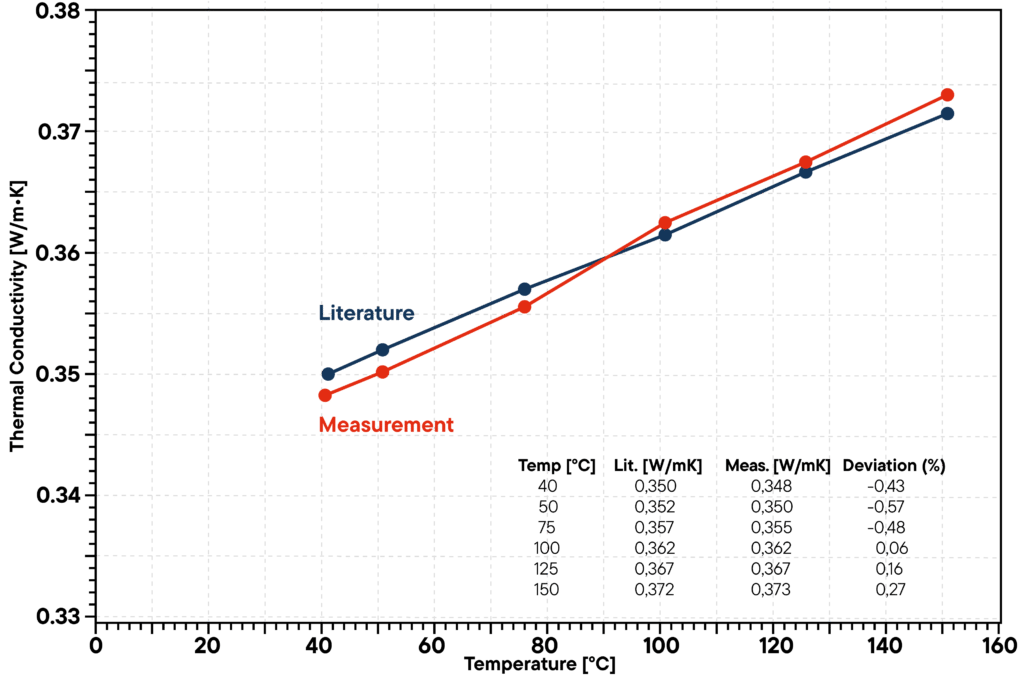Table of Contents:
Introduction
Vespel™, developed by DuPont, is a high-performance polymer renowned for its ability to withstand extreme thermal, electrical, and mechanical stresses.
This advanced polyimide-material boasts a range of remarkable properties that make it ideal for numerous demanding applications across various industries
Fillers such as graphite or PTFE make it possible to influence the properties in a targeted manner.
Properties of Vespel™
Exceptional Thermal Stability
Vespel™ exhibits unparalleled thermal stability, maintaining its structural integrity and performance at cryogenic to high temperatures of about 300 °C.
It can also withstand up to 400°C for short periods. This makes it an essential material for applications in high-temperature environments, such as aerospace and chemical industries, where materials must perform reliably over extended periods.
Superior Chemical Resistance
Vespel™ is highly resistant to a wide array of chemicals, including acids, bases, solvents, and oxidizing agents.
This chemical resistance ensures that Vespel™ maintains its properties and performance in aggressive chemical environments, making it suitable for critical components in valves, pumps, and seals.
Low Friction and High Wear Resistance
The polymer has an exceptionally low coefficient of friction and high wear resistance, which are critical for components subjected to high stress and friction.
These properties reduce the need for frequent maintenance and extend the operational lifespan of parts such as bearings and seals.
Remarkable Mechanical Strength and Stiffness
Despite its lightweight nature, Vespel™ offers significant mechanical strength and stiffness.
These attributes make it an attractive choice for structural applications requiring both durability and weight reduction, particularly in the aerospace and automotive industries.
Excellent Electrical Insulation
Vespel™ is an outstanding electrical insulator, ideal for use in the electronics industry and electrical systems.
Its insulating properties ensure the reliability and safety of electronic devices and components, preventing electrical failures and enhancing performance.
Testing Vespel™ with a Thermal Interface Material (TIM)-Tester
To ensure that Vespel™ fulfils the stringent requirements of various high-performance applications, extensive testing is carried out, including the use of a Thermal Interface Material (TIM) tester. The TIM tester evaluates the thermal conductivity and thermal resistance of materials, which are critical parameters for high-performance polymers such as Vespel™.
- Sample Preparation:
- Vespel™ samples are prepared according to the specifications required for TIM testing, involving precise cutting into standardized shapes and sizes.
- Placement:
- The prepared Vespel™ sample is positioned between two meter bars of the TIM-tester. The clamping pressure can here be defined precisely using the software.
- Measurement:
- The tester measures the temperature difference across the Vespel™ sample, calculating thermal resistance and thermal conductivity. These measurements provide insight into Vespel™’s ability to conduct and dissipate heat.
- Data Analysis:
- The collected data is thoroughly analyzed to ensure Vespel™ meets the required thermal performance criteria.
TIM-Tester – Vespel – Thermal conductivity, Thermal Impedance in Polymers
Vespel™ is a high-performance polymer which is suited for extreme thermal, electrical and mechanical stress. Dimensional and thermal stability, low thermal and electrical conductivity, excellent wear and bearing properties, and chemical and radiation resistance are some of its remarkable properties.
Advantageous is also that many components can be made lighter and more resistant with Vespel than with conventional metals, ceramics and polymers. Vespel has various applications and is mostly used in aerospace, semiconductor and automotive technology.
The plot shows a measurement of the thermal impedance of a 25mm x 25mm Vespel sample at 50°C (TH=70°C, TC=30°C) and a contact pressure of 1 MPa, using the TIM-Tester. Three different samples with a thickness between 1.1 mm and 3.08 mm have been measured in order to determine the thermal conductivity and thermal contact resistance (using linear regression, as can be seen in the diagram). The measured thermal conductivity, which is the reciprocal of the slope, is 0.35 W/mK. The thermal contact resistance is the offset on the Y-Axis.

TIM-Tester – Vespel – Thermal Conductivity
Vespel™ is a high-performance polymer which is suited for extreme thermal, electrical and mechanical stress. Dimensional and thermal stability, low thermal and electrical conductivity, excellent wear and bearing properties, and chemical and radiation resistance are some of its remarkable properties. Advantageous is also that many components can be made lighter and more resistant with Vespel than with conventional metals, ceramics and polymers. Vespel has various applications and is mostly used in aerospace, semiconductor and automotive technology.
A 25 mm x 25 mm Vespel sample was measured with the TIM-Tester in the temperature range from 40 °C to 150 °C using a constant contact pressure of 1 MPa. The thermal conductivity increases with temperature as it is expected from literature.

Further Methods for the Characterization of Vespel™
- Dilatometer (DIL):
- The dimensional stability of the material can be verified by analyzing it using a dilatometer. Typically, a low coefficient of thermal expansion is determined, but this can be influenced by various fillers which makes this investigation important.
- Laser Flash Analyzer (LFA) and Transient Hot Bridge (THB) method:
- Both measurement methods allow a further possibility of characterizing the thermal diffusivity and thermal conductivity over a wide temperature range.
Applications of Vespel™
Vespel™’s impressive material properties make it indispensable in various industries and applications:
Reference material
Aerospace
Chemical Industry
The chemical resistance of Vespel™ makes it ideal for components like valves, pumps, and seals operating in harsh chemical environments.
Its durability ensures these components withstand corrosive substances without degradation, maintaining operational integrity.
Semiconductor Industry
In the semiconductor industry, Vespel™ is used for wafer carriers and as insulators.
Its thermal stability and low outgassing properties are crucial for maintaining purity and performance in semiconductor manufacturing processes.
Automotive Industry
The automotive industry benefits from Vespel™’s low friction and wear resistance, employing it in seals and bearings that endure high stress and friction.
Additionally, its lightweight nature contributes to the overall efficiency and performance of vehicles, enhancing fuel efficiency and reducing emissions.
Medical Technology
In medical technology, Vespel™ is employed in the production of implants and instruments.
Its biocompatibility and durability make it suitable for long-term use in medical applications, ensuring patient safety and product longevity.
Conclusion
Vespel™ represents a paradigm shift in high-performance polymers, enabling significant technological advancements across various industries.
Its unique combination of thermal stability, chemical resistance, low friction, wear resistance, mechanical strength, and electrical insulation properties make it an indispensable material for applications demanding the highest levels of performance and reliability.
Rigorous testing, including the use of TIM-testers, ensures that Vespel™ meets stringent requirements for advanced applications.
As industries continue to evolve and push technological boundaries, Vespel™ will remain a critical material in meeting these advanced requirements, driving innovation and efficiency.